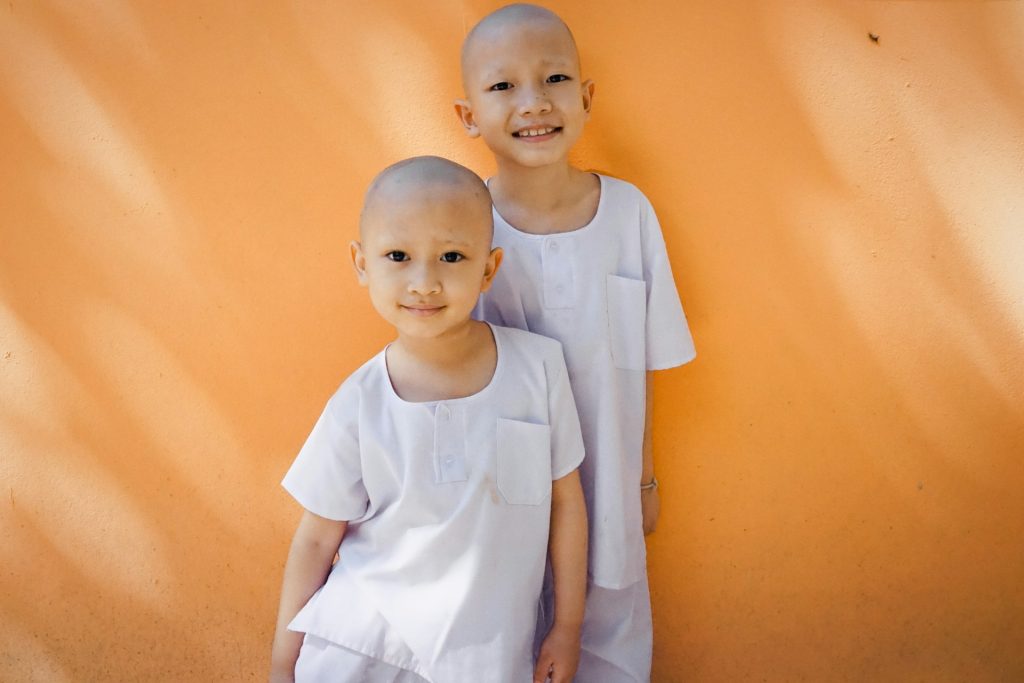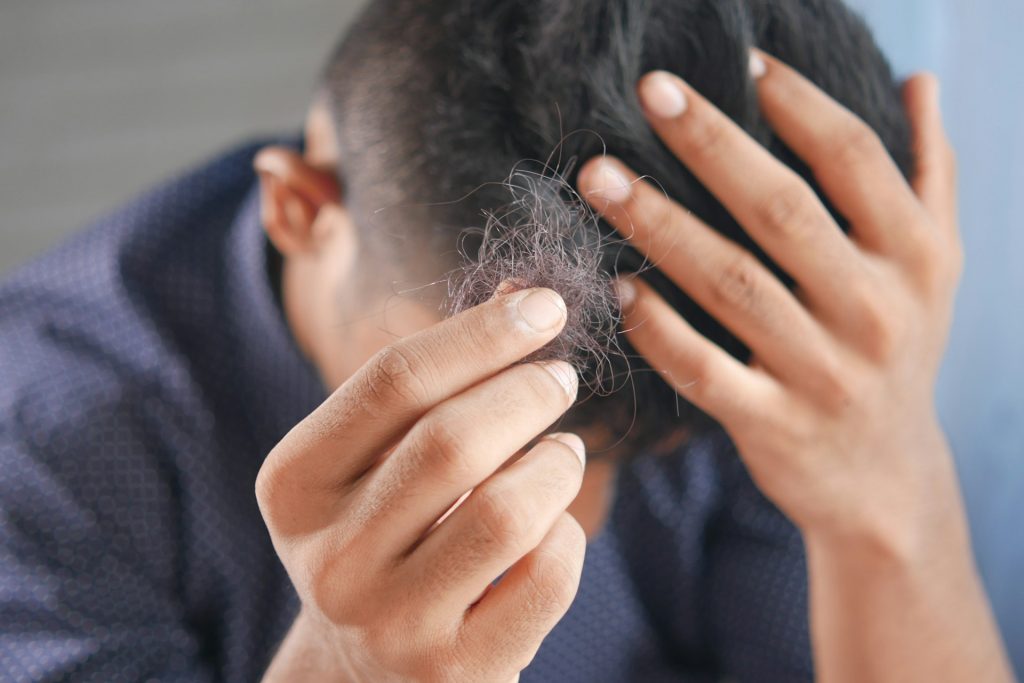Hair loss is a concern that many individuals face at some point in their lives. Whether it’s gradual thinning or sudden bald patches, understanding the potential causes is crucial for finding effective solutions. In this article, we look into the diverse factors that contribute to hair loss, shedding light on why those luscious locks might be bidding farewell.

Hormonal Imbalances
Hormonal imbalances, particularly excess androgens, play a significant role in hair loss. Dr. Michele Green, a cosmetic dermatologist, highlights their connection to both female and male pattern baldness. Learn about the impact of androgen sensitivities during hormonal changes like those associated with birth control use or menopause.
Thyroid Problems
Other hormone-related issues can also lead to hair loss, particularly those involving thyroid hormones.
Both hypothyroidism (an underactive thyroid) and hyperthyroidism (an overactive thyroid) can cause hair loss due to hormonal imbalances. Autoimmune thyroid diseases like Hashimoto’s thyroiditis and Graves’ disease are additional contributors, as explained by the Cleveland Clinic.
Thyroid hormones play a crucial role in regulating various bodily functions, including hair growth. Proper treatment to manage these thyroid conditions helps control hormones, halt hair loss, and kickstart the regrowth of your hair.
Pregnancy and Postpartum Hair Loss
Hormonal imbalances, particularly after pregnancy, can cause hair loss. Dr. Green notes that postpartum hair loss is common, affecting 40 to 50 percent of new mothers. During pregnancy, increased estrogen levels temporarily disrupt normal hair growth cycles, resulting in less hair loss than usual.
Medications and Hair Loss
Certain medications for common health issues can lead to hair loss, termed “drug-induced hair loss” by the American Hair Loss Association.
Blood thinners, oral contraceptives, antidepressants, anti-inflammatories, and certain vitamins like A and retinoids may contribute to thinning hair or baldness. Some cancer chemotherapy drugs cause total hair loss but often regrows after stopping treatment.
If experiencing medication-induced hair loss, consult your doctor before stopping any prescribed medication. They may adjust your treatment to find a solution without compromising your hair.

Alopecia Areata (AA)
Alopecia, or hair loss, includes alopecia areata, an autoimmune condition where the immune system attacks hair follicles, hindering new hair growth.
Alopecia areata can cause hair loss on the scalp or throughout the body. The American Academy of Dermatology Association notes it can lead to thinning hair, patches of loss, partial balding, or total baldness. The condition may be permanent or temporary, with various causes, including genetics. Consult your doctor for potential treatments.
Autoimmune Diseases
Alopecia areata is among several autoimmune diseases causing hair loss. Examples include Hashimoto’s thyroiditis and lupus, as noted by DermNet NZ. Though this hair loss may be permanent, medications and hair restoration surgeries can help.
If you have one autoimmune disease, the risk of developing others increases. Regular monitoring by your doctor for new symptoms or changes is crucial for early detection and management.
Physical Trauma
Severe physical stress can disrupt the natural hair growth cycle, causing hair loss, often in the form of thinning or clumps. Shock to the system from incidents like accidents, surgery, burns, or illness affects hair follicles.
Penn Medicine notes that 50 to 75 percent of your hair may fall out months after such stress, known as telogen effluvium, which usually resolves within six to eight months.
Infections and illnesses, including high fevers or severe infections, contribute to temporary hair loss. Fungal or bacterial infections, like syphilis, can also lead to balding or thinning hair.
Stress
Intense stress, like from illness or surgery, can trigger hair loss, explains Dr. Green. During acute telogen effluvium, up to 70 percent of hair follicles enter a resting state, compared to the usual 10 to 20 percent.
Surprisingly, in cases like COVID-19, stress rather than the disease itself can cause hair loss, as highlighted by the AAD. This effect is also common after a fever or during general illness recovery.
Trichotillomania
While stress can temporarily cause hair loss, severe stress or anxiety may lead to trichotillomania, a condition where individuals compulsively pull out their hair. Researchers link this mental health issue to obsessive-compulsive disorder and other anxiety disorders.
Signs of trichotillomania include finding relief or pleasure after pulling hair and noticeable patches of hair loss. The Mayo Clinic notes it typically starts between ages 10 and 13, but it’s a chronic problem that may improve with treatment.
If you’re experiencing hair loss from other causes and have a history of hair-pulling disorders, stress may trigger trichotillomania.
Nutrient Deficiencies
Dr. Green says that lacking certain vitamins and minerals can cause hair loss as they play a role in the hair growth cycle and cellular turnover.
Inadequate protein, biotin, zinc, and iron are examples of vitamin deficiencies that can lead to hair loss, notes the AAD.
Eating a healthy, varied, and balanced diet with essential nutrients like protein ensures overall good health, supporting proper organ and system function. Poor nutrition or extreme diets can result in nutrient deficiencies, leading to hair loss, including thinning and bald patches.

Armed with knowledge about potential causes of hair loss, you can take proactive steps to maintain healthy hair. Consult healthcare professionals for personalized solutions, recognizing that your hair health mirrors your overall well-being. Nurture your hair with care, and remember, solutions are available for various hair loss challenges.





